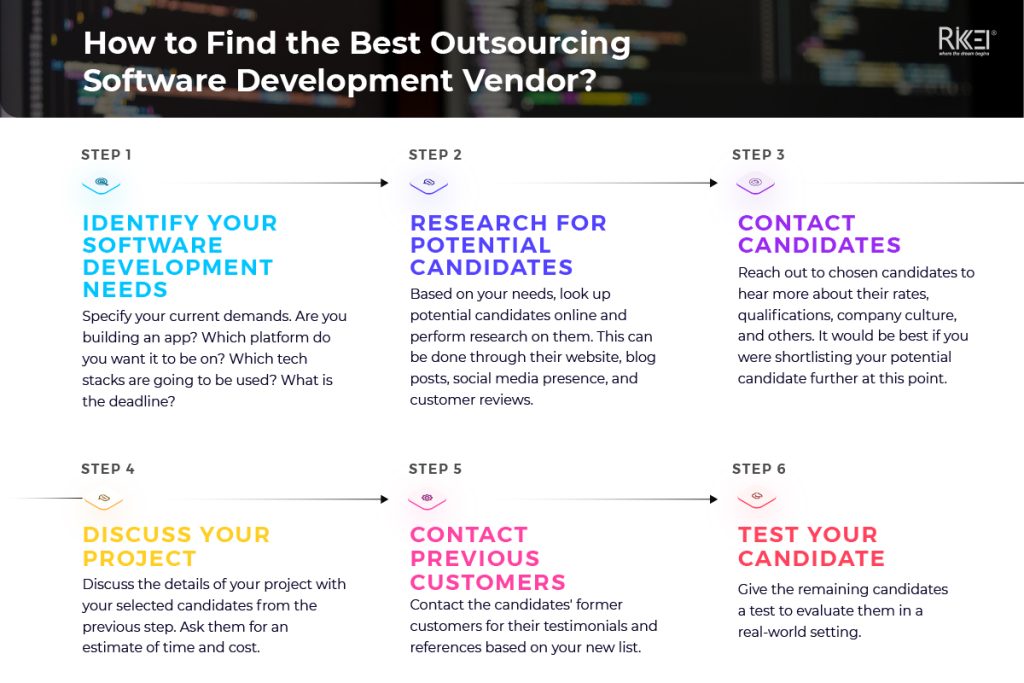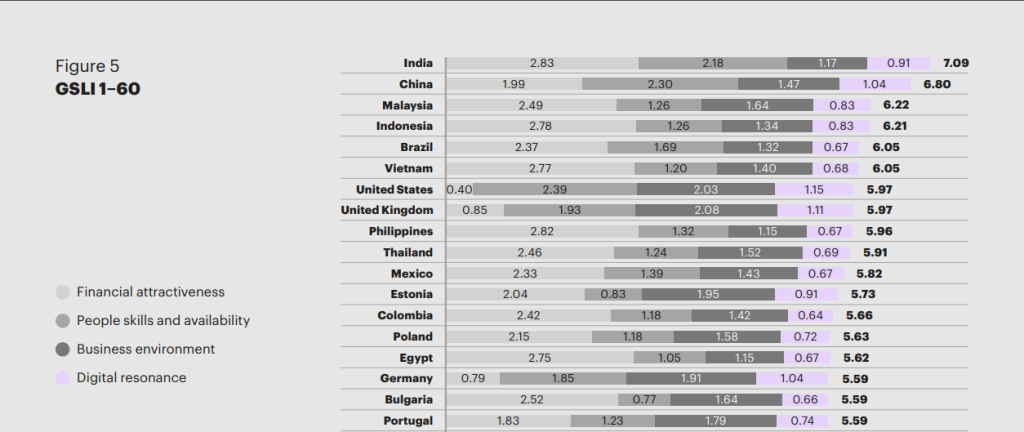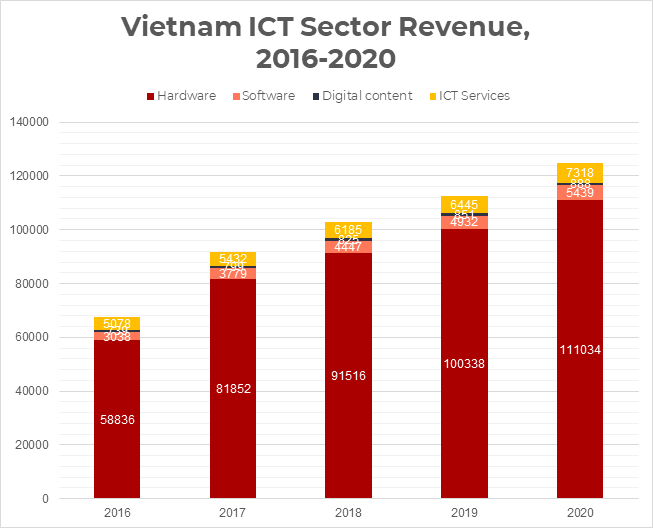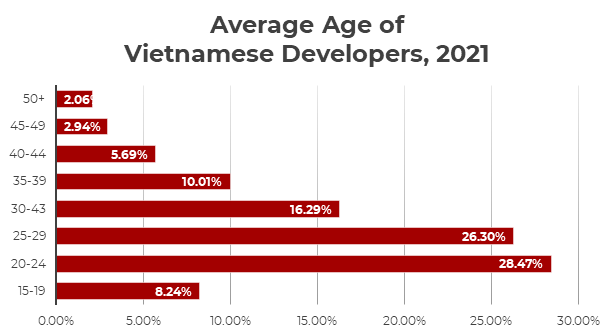Outsource Software Development in 2023: Why & How
Contents
Companies are advancing at a breakneck pace in today’s ever-changing business landscape. As a business owner or executive, you might want to implement digital solutions into your workplace to outpace your competitors – be it automation of daily tasks, virtual assistants, or a software idea that you wish to be tailor-made for your business needs. However, this is an expensive and time-consuming process that your business might not have the resources for. Fortunately, an option exists in Software Development Outsourcing. So what is Software Development Outsourcing, its benefits and challenges, and how can you leverage it to grow your business further?

What is Software Development Outsourcing?
Software Development Outsourcing is, simply put, hiring another company to develop software for you, whether it is used internally in your company or commercially delivered to your customers. You can outsource the entire development process or just parts of it, including (but not limited to):
- Feasibility Study: Thorough analysis of your product idea to minimize early risks.
- UX Design: Crafting a smooth and frictionless user experience for your outsource software project.
- Consultation: Providing advice to implement the right technology for your development needs.
- Software Architecture: Creating the fundamental structures that your software requires.
- Software Testing: Ensuring your outsource software project is reliable, efficient, and up to industry standards.
Why Should You Start Software Development Outsourcing Right Now?
As of 2017, 64% of companies chose to outsource their software development to third-party vendors, proving that Software Development Outsourcing has advantages over hiring your own in-house IT team. By outsourcing, you will gain these four benefits, among others:
Lower costs
The premier reason for Software Development Outsourcing is to lower your costs. A staggering number of companies (59%) cut their costs by an average of 30% by outsourcing their software development needs. This is mainly due to hiring costs, or rather the lack thereof.
Hiring a new team of developers is costly. Your limited resources are used to scout, train, and onboard these new hires. You are also investing in their office supplies and equipment, which is a lot upfront. Hiring an outsourced team alleviates these altogether, saving you money on the mentioned expenses.
The cost of living difference is also a key player, with developing countries like Vietnam having much lower costs of living than developed countries like the United States, making their wages a fair bit lower as well.
Global Access to Talent and Technology
With Software Development Outsourcing, you are not geographically limited to developers in your area. Instead, vendors from all over the world are at your fingertips, all ready to meet your requirements for custom software development.
These teams of highly specialized professionals have experience and expertise from their previous projects and customers, as well as state-of-the-art software development tools at their disposal, enabling them to adapt to your needs.
They might also be following the Agile or DevOps development approach, further increasing their productivity and speed of delivery and, in turn, boosting your company’s tech capability.
Increased Core Efficiency
If you already have an internal IT team, outsourcing time-consuming and more specialized projects to third parties also benefits them.
Without having to pick up new skills and knowledge, your in-house team can focus more on projects that benefit your company’s growth and fit their expertise and skill levels, all while having external developers with the right toolset for the job perfecting your niche project, like those from Rikkeisoft.
Scalability
While being worked on, your project might have a change in scope, requiring a team expansion. As previously mentioned, hiring new staff is expensive. Aside from the obvious monetary cost, training, and onboarding new in-house developers to meet the previous team’s standards and the required skill level for the job takes time and resources, making it hard to scale up your production and efficiency in a timely manner.
Scaling is almost never an issue when you outsource your software development staff. Third-party outsource IT development vendors have sufficient staff to deal with growing projects, and if these companies need someone with a highly unique skillset for the project, they are willing to recruit experienced freelancers to cover the gap in their team.
5 Major Challenges of Outsourcing Software Development
Communication Barriers
A global pool of talent brings its’ own issues, such as effective communication between your company and the hired vendor. The biggest offenders here are time zone differences and language barriers.
Time zones could cause a clash between you and your vendor’s schedules if the issue were not worked upon beforehand. In addition, communication between teams can be slowed down due to this, and you might not be able to get important information through in time.
Language barriers also play a role in hindering smooth communication between you and your outsourced team. It is difficult to convey your ideas in a different language entirely, and that by itself can still be misinterpreted by external vendors, leading to unsatisfactory products.
Different Business Philosophies
Having differing mindsets on how to do business can be an obstacle
for you while outsourcing software development. Companies often have their own established guidelines, methods, and pace that are suited to them. To an outsider, those might be unusual, as they are not used to it.
Hiring an external IT vendor can and will be weird at first since you might feel like you do not have control over your product because of the different philosophies. However, it will be easier as you go on and can be resolved by having thorough discussions on the preferred business structure from the start.
Scope Misunderstanding
This mostly comes as a result of miscommunication, but it can also happen if you are a non-tech business owner outsourcing your technological needs. Not fully understanding the scope of the project leads to scope creep, where the product grows uncontrollably in scope and strays from your original expectations of it.
Hence, it is essential to clearly document any features you want to include as a framework when beginning development. The outsource IT development team will then add on any further details to the framework while keeping your vision intact. This ensures a mutual understanding between you and the development team regarding your own project.
Data Privacy
It cannot be denied that exposing private, confidential company information and data to an outsourced team carries a risk with it. It can be stolen or replicated by individual employees or be subjected to security breaches. Your program’s code might even be used for competitors without your knowledge!
To prevent these from happening, you can:
- Have your outsourced development team sign a Non-Disclosure Agreement (NDA) before handing them your data and information, protecting yourself from having vital information leaked without compensation.
- Claim intellectual property rights during the contracting phase. This helps you settle any intellectual property disputes in the future.
Code Quality
Another hurdle to tackle while outsourcing software development is to ensure code quality meets your expectations. Although there are no concrete standards and definitions for “good-quality” code, your project’s code should have two main attributes: clarity and maintainability.
This can be hard to verify if you are a non-tech business owner, however, so care should be taken when choosing an outsourced software development vendor to avoid headaches later down the line. You can, alternatively, hold regular meetings with the development team to always be in the know of the development cycle.
How to Outsource Software Development?
With all that said – how to outsource software development for growth? The following tips provide you with a generic baseline that you can easily adapt to your company’s situation, whether you are a small entrepreneur or an established company looking to expand through outsourcing software development.
Setting Clear Goals
“Growing” as a term is way too broad. For your business to gain effective growth, your goals should be as specific and precise as possible. Do you want to build a team for a new market? Are you looking to cut down costs? You should know what you can do and want to do now that part (or the entirety) of your technological work is offloaded to an outsourced software development team and freed up resources to be used elsewhere.
By establishing clear goals, your decision to outsource can be made easier, knowing exactly what you need from a third-party vendor to facilitate growth for your own business.
Be Ready for Change
By outsourcing part of your company’s work, you are inadvertently changing how everything works to accommodate this new addition, whether you want it or not. Therefore, it is best to have your business and your existing teams adequately prepared for the change.
To start with, you can discuss how the workflow will incorporate the new outsourced software development team, how that will affect current staff, and what they should do to maximize their efficiency with the novel addition.
Furthermore, you should be able to answer questions from other high-ranking and critical members of your business who might ask you about the budgeting, efficiency, and duration of your outsourcing. Be prepared!
Choose a Good Vendor
As helpful as they are, ultimately, the quality of your product is just as good as the third-party vendor is. Choosing a good outsourcing software development firm, due to that, is essential and should be done with care.
In order to know whether your vendor is reliable, testimonials and references from former customers should be your primary guide. The vendor should also be eager to prove themselves to you, providing consultations, proposals, and face-to-face meetings in order to learn more about your business and if they are a good fit for your software development demands.
Since it quite singlehandedly decides your entire experience with outsourcing software development, this decision should not be made hastily. Take your time until you are confident that your outsourced partner is the right one.
Use a Test Project
It is recommended that before going all-in with your outsourced vendor, you start small and give them a trial project. Based on their performance in this project, you can decide between continuing to work with them or finding a new partner.
During the trial project, you should pay attention to the outsourced vendor’s communication, their management, and their honesty towards you regarding project matters. It calls for a small investment, but testing ensures that significant issues will not pop up during your time with them.
How to Find the Best Outsourcing Software Development Vendor?
There are no “best” outsourcing software development vendors, just the one that suits you and your business the most. However, there are several steps that you can take in order to choose the most fitting vendor for your needs.

#Step 1: Identify your software development needs
Specify your current demands. Are you building an app? Which platform do you want it to be on? Which tech stacks are going to be used? What is the deadline? Create a clear software development plan.
#Step 2: Research for potential candidates
Based on your needs, look up potential candidates online and perform research on them. This can be done through their website, blog posts, social media presence, and customer reviews.
#Step 3: Contact candidates
Reach out to chosen candidates to hear more about their rates, qualifications, company culture, and others. It would be best if you were shortlisting your potential candidate further at this point.
#Step 4: Contact previous customers
Contact the candidates’ former customers for their testimonials and references based on your new list.
#Step 5: Discuss your project
Discuss the details of your project with your selected candidates from the previous step. Which software development methodology is suitable for your project? Ask them for an estimate of time and cost.
#Step 6: Test your candidates
Give the remaining candidates a test to evaluate them in a real-world setting.
After the test, you can now reliably choose the outsourcing software development firm that satisfies all of your criteria. It is not perfect, but they are very likely to be a great fit for your business and an excellent addition to your existing team.
Vietnam – The Next Global Outsourcing Hub

The 2021 Global Services Location Index report by consulting firm Kearney ranked Vietnam as the 6th most capable country to deliver services based on financial attractiveness, the workforce’s skills and availability, business environment, and digital resonance. The country is highly ranked, and it is not without reason: Vietnam is a major contender to be the next global software development outsourcing hub.
Thriving Technology IndustryVietnam has a fast-moving and eager-to-grow technology scene. The growth rate of ICT revenue in Vietnam reached almost 8% in 2021, tripling the national GDP growth of 2.91%. This is not a fluke either – Vietnam has been steadily and speedily improving the worth of the ICT sector for a long while now, and with the renewed interest of both the government and prominent firms in investing in the ICT sector, this pace of growth seems unlikely to falter in the near future.

Young and Ready Software Development Workforce
Vietnam’s developers are young and abundant, with around 400 000 software developers currently active. Within those numbers, almost 55% are between the age of 20-29, and a small but not insignificant number of developers are aged under 20, according to TopDev’s Vietnamese IT Industry Market 2021 report.
As for the quality of developers, since science subjects are offered from a young age as mandatory courses, Vietnamese students have a firm grasp on the baselines of software development should they choose to venture into the field. Among developers, PHP and C# are the most popular languages that Vietnamese programmers feel that they are comfortable using, as surveyed in TopDev’s 2021 report.

Rikkeisoft, Vietnam’s Leading Software Development Outsourcing Firm

Founded in 2012, Rikkeisoft is an award-winning IT firm that can help you elevate your business with our accumulated expertise in information technology. Its’ founder and chairman, Mr. Ta Son Tung, was named in Forbes’ “30 Under 30” list of 2015 and aims to grow Rikkeisoft into the number one technology company in Vietnam. Its primary clients are international, coming from Japan, the United States, and many other countries.
Rikkeisoft offers a multitude of services, ranging from traditional IT services like outsourcing software development, web development, UX/UI design to advanced technology solutions (Blockchain Development, Cloud Computing, Internet of Things Development, and Digital Transformation). We work closely with our clients to ensure that your vision meets ours and that vision becomes a reality through our teams of highly-skilled software developers.
Closing Thoughts
It might be daunting to use new technology to expand your business, but you do not have to be alone. By outsourcing software development to reliable external vendors like Rikkeisoft, you are gaining the accumulated skills and knowledge you might not have otherwise while freeing yourself to focus on what matters the most for the growth of your company. It has been Rikkeisoft’s honor to bring you this information, and we hope that your next endeavor with outsourcing software development is successful and effective.
More From Blog

August 8, 2024
Data-Driven Product Development: Strategy To Drive More Sales
As a business owner, you want your products or services to be well-received upon launch. The most effective way to create a product that satisfies a broad range of customers is to gain insights into their needs and behaviors from the outset. The key lies in data-driven product development, a strategy that many companies have […]

August 8, 2024
7 Steps To Establish A Data-Driven Governance Program
While data-driven approaches significantly benefit organizations in various ways, failure to govern the huge data sets will hurt your business even more. Effective data management also ensures data quality and security. That’s why there is an increasingly high demand for data-driven governance programs. Continue reading for a detailed guide! What Is Data-Driven Governance? Surprisingly, many […]

August 8, 2024
Data-Driven Business Transformation: 7 Steps To Follow
Data empowers businesses to make well-informed decisions in different departments, like marketing, human resources, finance, and more. As a business owner, you should also employ data-driven approaches to skyrocket productivity and efficiency. If you are still new to this concept, scroll down for an in-depth guide on data-driven business transformation. What Does A Data-Driven Business […]

August 8, 2024
Data-Driven Security: Transforming Protection Through Analytics
Cybersecurity was once an afterthought for most organizations. But in today’s digital landscape, it has become mission-critical. With this transformation has also come a shift in how security decisions are made. Rather than relying solely on intuition and tradition, leading organizations are embracing data-driven strategies. By using metrics and insights around threats, vulnerabilities, and more, […]

August 8, 2024
Differences Between Data Science and Computer Science
Data Science and Computer Science are distinct fields overlapping in certain areas but have different focuses and objectives. The article below will help you clearly understand the differences and the close connection between the two fields. What is Data Science? Data Science is an interdisciplinary field that combines scientific methods, processes, algorithms, and systems to […]

August 8, 2024
How Real-Time Data Analysis Empowers Your Business
In today’s fast-paced business landscape, the ability to quickly make data-driven decisions has become a key differentiator for success. Real-time data analysis, the process of analyzing data as soon as it’s generated, has emerged as a powerful tool to empower business across industries. By leveraging real-time data analysis, organizations can gain timely and actionable insights, […]

